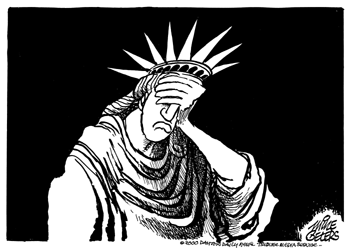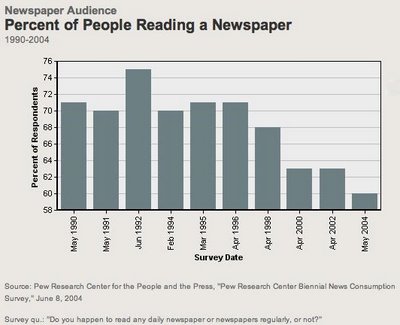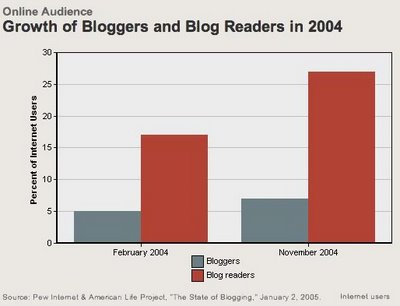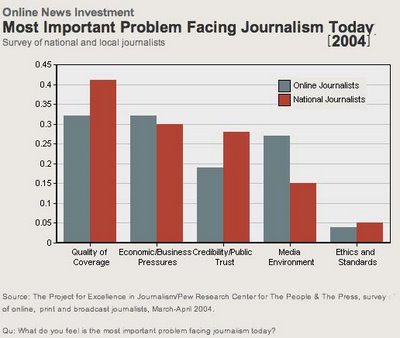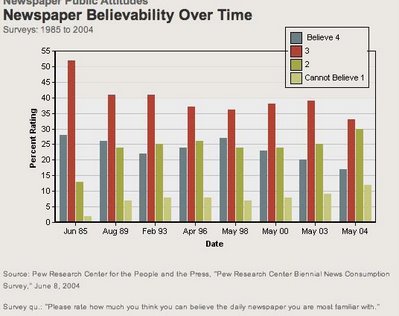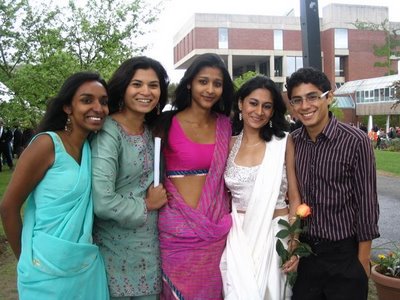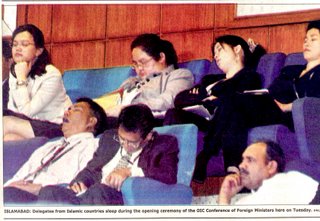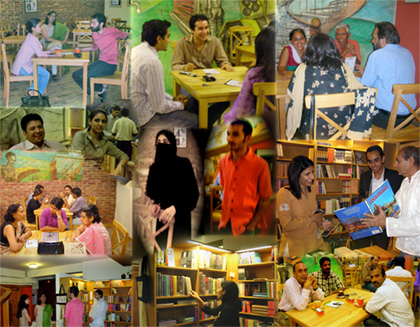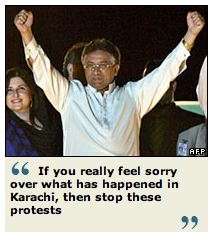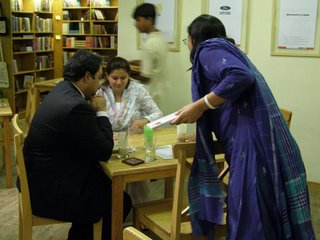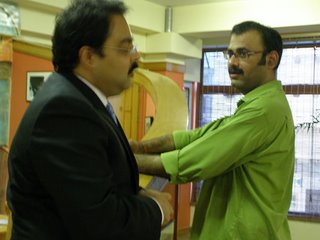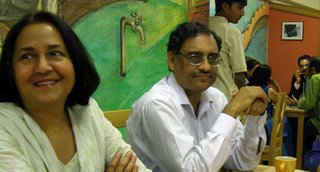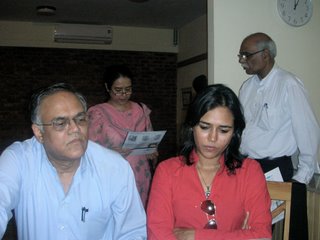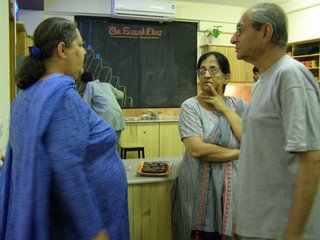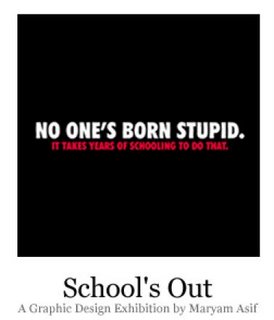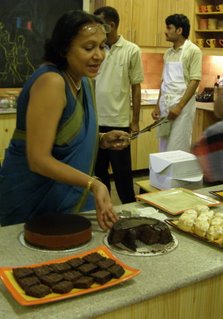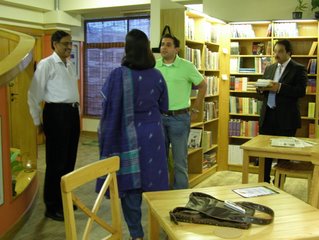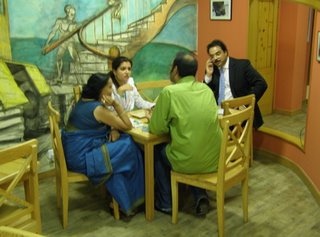How things change ...
It was the late 70s. Our ship docked in Beirut - a city I had loved in my early visits in the '60 and '63. Wonderful climate, beautiful places, lovely people. And, for someone in his early 20s, the added charm of visiting Kahlil Gibran's city.
But things were different.
The city had been brutalized by wars and battles too confusing to even begin to comprehend. Quickly changing alliances meant everyone was shooting at everyone else at one time or another. The lovely buildings were torn down, ripped apart, or bomb-blast rubble. All roads had blockades and tons of sandbags and morchaas where on-duty soldiers sat when they relieved their colleagues who were occupying all the modern hotels no longer capable of attracting crowds or tourists.
TV News Channels had not been as rampant then and the few news pictures in the press had barely prepared us for the real sight
Although we should have guessed how bad things were becoming in the world (not just in Beirut) from the first 2 shocks we received when entering the harbour. The pilot (for those unfamiliar, this is person who navigates the ship into closed harbours and ports after the ship's captain has brought it up to the entrance, because the pilot is more familiar with the local tides, seabed changes and movements in the harbour, to name some reasons) was taking the ship in to dock, when a mild but very definite explosion was heard on the side of the ship. All of us, except the bemused looking pilot, rushed out into the bridge-wings to see what had happened. All we could see were some very young kids in a boat. Puzzled, we turned to the pilot, who - totally nonchalantly - informed us that the kids in the boat must have been using grenades to throw into the sea, since it brought up many fish (including dead ones) ... a novel method, but practical (he said) since fishing nets and wires were often more difficult to get hold of than grenades.
No doubt this was the greater of the two shocks, at that time. But, over the years, I feel that the second one was more impactful: The wave of laughter that my fellow seafarers burst into on hearing this, while Nuzhat (who was travelling with me - as she did for 12 years at sea) and I exchanged pained and shocked glances.
The next incident in Beirut caught us totally unawares.
The city was heavily divided into Christian and Muslim sectors (even the harbour had two different gates) and it was generally unsafe for people from one community to venture out into the other. (In some other post, if it warrants, I shall describe how different the two sectors were.) The head of the shipping agency was also the leader of the leading Christian political party and, eventually became a very senior official in the government. He sent his car to escort us to the office and join him over a cup of coffee. We had armed guards with us and felt really odd in such surroundings, being used to Karachi's peace. (Yes you heard right!)
We'd just gotten off the car outside the office when there were sounds of what we assumed was motor-rickshaws backfiring. So Nuzhat and I stood and looked all around us to see what kinds of rickshaws existed in Beirut. Very slowly it dawned upon us that we were the only two people standing. Everyone else was sheltered somewhere or lying face-down on the ground. And our driver was desperately motioning us to do the same. When it was over we realized that our preconditioning had caused this problem. We had never heard gunfire up so close and motor-rickshaws, in Karachi, were an everyday sound source.
It was not much longer, later, that Karachi's Beirutization took place and every motor-rickshaw misfiring began to sound like gunfire to us. We have only Zia to curse for this because, in him, we have found an easy peg to hang this on (and a lot of justification, too). The country's politicians, the dissenting factions within the army, and a frustrated population waiting to be misled ... all contributed.
Fast-Forward to today. Despite what many of you saw on TV of May 12, the fact is that many of us in Karachi also saw it only on TV. Contrary to the kinds of questions I get asked about Karachi (not just from people from other countries wanting to visit for whatever reason, but from friends in other Pakistani cities), many of us have not been eyewitness to something like this. Yes, a hell of a lot more have had phones and cars snatched. And dacoits enter homes. But killings, no. So, when - about an hour ago - I was startled by extra-ordinarily loud gunfire and pistol shots outside my house (we live in a cul-de-sac so we hardly hear anything but cars visiting us or our neighbours), Nuzhat and I rushed out to look through the window and - very quickly - ducked back for fear of being hit by a stray bullet.
Around 20 minutes of frighteningly increasing cross-fire later, there was silence. Doc Shamim and I (our gates are opposite each other, just over 15 feet apart) came out to see - just two houses away - a horde of police vans, some still screeching in, an overturned motorcycle next to a windshield broken car, many civvies with large guns and mustaches (this scary lot belongs to some minister who has, much to our chagrin, moved nearby) and kids from everywhere nearby gathered. So far all I can report is 3 young men injured (and captured). Plus one shot dead. One unconfirmed injured policeman. No idea what kind of encounter or chase resulted in this. Keep tuned in. If I hear anything, I'll add it.
The only thing I could see staring me in the face, as in the first Beirut incident, was the utter insensitivity on the smiling faces of people who gathered, their voyeurism satiated. Who, then, can blame the kid from the gali who, in the midst of all this, went up to the police to ask if he and his friends could now go back to completing their lane cricket match which was disrupted by this 'incident'?
Peace!
